Biotics, Plasmids, Vault-Tec: 11 RPGs that refuse to call it 'magic'
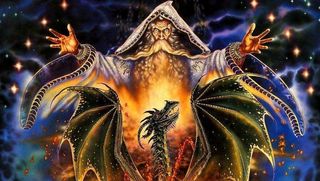
Oh, ho, ho, it isn't magic, you know
RPGs have carried a few things with them ever since they got their start by lovingly ripping off Dungeons & Dragons decades back: a taste for adventure, statistics, difficult choices, and the powerful, undefinable force known as 'magic'. Fortunately, most games don't faithfully translate over just how much it could suck to be a first-level wizard in old-school D&D, and they skip right to the awesome fireball-tossing part instead.
Some games still celebrate that lineage with powerful wizards and familiar spells, but others try to stand apart from the swords-and-sorcery pack with inexplicable powers of their own. Now that pretty much every game uses RPG mechanics at some level, the presence of magic (or something like it) is as good of a genre definer as any. Still, some do a better job of distinguishing and explaining their particular world-altering stuff than others. Here's a look at some of the most (and least) inspired magical alternatives out there.
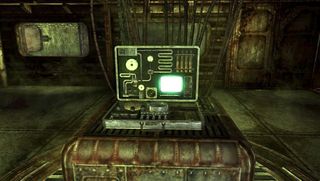
Fallout gives you that old-time technology
The substitute: Almost every awesome piece of gear and plot-driving MacGuffin in the Fallout series is hundreds of years old, having been manufactured before the nuclear holocaust. You have to admire the craftsmanship of that RobCo Protectron, still keeping watch in the DC Metro centuries after its last regularly scheduled maintenance. They just don't make 'em like they used to.
Why it's definitely not magic: The Brotherhood of Steel may venerate old pieces of tech like they're holy relics, but it's all the work of lost human knowledge. Power armor, super sledgehammers, plasma pistols - they all have some basis in modern engineering, even if some bits are less practical than others. That being said, I'm still not really sure how the Garden of Eden Creation Kit actually works, given it's just a briefcase with a bunch of vacuum tubes in it. Or how the Vault-Tec Assisted Targeting System can apparently stop time.
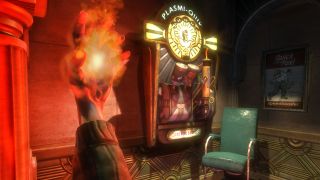
BioShock introduces you to ADAM and EVE
The substitute: Andrew Ryan didn't intend for the underwater city of Rapture to be a den of murderous mutants. But when a species of sea slugs filled with gene-altering goo were discovered nearby, his carefully constructed supply-and-demand paradise took care of the rest. Pretty soon people were using the substance, called ADAM, to give themselves the powers of telekinesis, super strength, and more. This pretty much goes for BioShock Infinite's Columbia, too, via inter-dimensional tomfoolery.
Why it's definitely not magic: We've already made fluorescent fish, so who's to say a few tweaks to the genome couldn't let you engulf people in flames by thinking angry thoughts? Especially if you have some nice, glowing blue EVE to fuel your mind powers. And c'mon, mana potions come in fancy glass bottles, not hypodermic syringes! Just nevermind the fancy glass bottles in Burial at Sea.
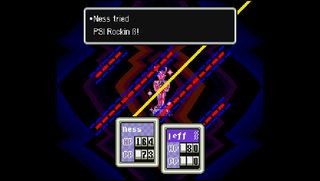
EarthBound is a psi paradise
The substitute: If you didn't play Mother/EarthBound Zero (it wasn't easy to get a hold of outside Japan) you may not have much idea why a bunch of middle schoolers can shoot flashy mind beams at their opponents in EarthBound. Turns out it's actually a side effect of Giygas' interdimensional meddling, rather than a latent ability of the human mind, which also explains why taxicabs and mushrooms have become so hostile recently.
Why it's definitely not magic: For one, Jeff can't wield PK powers. This is a huge diversion from standard RPG procedure, where the brilliant bookworm is usually the most powerful magic wielder. It also seems to affect people, animals, and even inanimate objects at random, rather than manifesting through training or a bloodline.
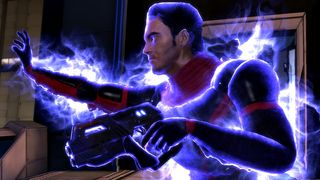
Mass Effect is pro-biotic
The substitute: It's right there in the name. Individuals with biotic powers can manipulate the mass effect to create localized gravity distortions, letting them levitate objects, toss people like ragdolls, and even tear stuff apart with tons of tiny fluctuating fields. All Asari are inherently capable of using biotics, but most of the other sentient races only develop the ability when exposed to the super rare and powerful element zero before birth (and some assembly is required).
Why it's definitely not magic: You don't need a migraine-inducing brain implant to cast Magic Missile. Even if biotic powers go a little beyond what you might expect from distorting gravity, Mass Effect does a decent job of keeping the whole concept somewhere in the neighborhood of physics. But why does Kaidan glow purple and wave his arms around? Um How do the terms 'dark energy' and 'physical mnemonics' strike you?

Destiny is Light on details
The substitute: The Traveler gives Light to the Guardians to help power their defense of the City from the encroaching Darkness. Unexpected Capitalization is one of its Most Potent Properties.
Why it's definitely not magic: It's somehow even less well-explained than magic. Magic always comes from life or love or trees or stuff like that, and people wearing robes can learn how to scoop it up and turn it into Color Sprays or Cones of Cold. Light comes from the Traveler and, um, you can level up past 20 with it. Try as you might, you simply cannot use magic to level up past 20.
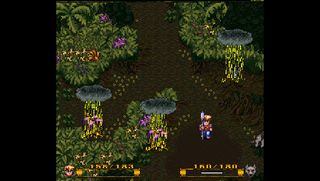
Secret of Evermore is all alchemy, all the time
The substitute: Alchemy isn't just for turning lead into gold! Using mundane ingredients found across Secret of Evermore's unique worlds, alchemists (including the main character) craft recipes that grant them everything from healing powers to the ability to conjure acid rain clouds. Much like a skilled chef honing a dish to perfection, your results will improve over time.
Why it's definitely not magic: Ok, it's kind of magic. The end result is definitely magical. But unlike a wizard shouting some Latin-sounding string of syllables and pointing her wand, alchemy requires scientific experimentation. You mix two ingredients together in the proper proportion and then something nifty happens, no chanting required. It's law-of-conservation-of-mass approved!

South Park: The Stick of Truth is powered by imagination (and farts)
The substitute: It's South Park, so of course everybody just goes along with Cartman and the gang's globetrotting live-action roleplay adventures, fashioning weapons and other equipment out of bath robes and golf clubs. And it's South Park, so of course you can wield your farts like an incredibly adaptive weapon, knocking down barricades or blowing up enemies who are standing next to an open flame.
Why it's definitely not magic: They may act like it's magic, but it's still just a bunch of LARPing idiots wafting their gas at each other. Don't fret, though. As long as you believe (and have a piece of sophisticated alien technology crammed up your butt), anything is possible.
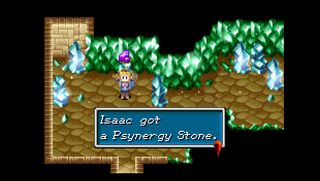
Golden Sun has Psynergistic solutions
The substitute: Psynergy is kind of like alchemy meets telekinesis. In Golden Sun, 'adepts' can only ever attain mastery over one of the four Psynergy Elements - which have their own names but are basically earth, wind, fire, and water - and then can mentally manipulate them for all the standard sorcerous pursuits.
Why it's definitely not magic: It's got 'psy' right there in the word. Really, though, it's the inclusion of Chi - life force which can be manipulated with sufficient training - that sets Golden Sun's world apart. Psynergy comes from the mind while Chi comes from the body, so neither are just catch-all 'magic'. It's a neat setup, and a nice consolation prize for anybody not lucky enough to be a Psynergy adept (the lucky jerks).

Torment: Tides of Numenera is all about future forgetfulness
The substitute: If you want a quick stat boost in the new Torment, you're not looking for a +1 Magic Sword. You're looking for a potent piece of numenera. Taking place on an Earth eight civilizations after our own, the Mad-Max-meets-Conan population doesn't know how all the cool stuff we left behind works, but it does know that it's super powerful (and totally worth fighting over). Speaking of future knowledge, how do I know all this about a game that isn't out yet? Torment borrows its setting from the Numenera pen-and-paper roleplaying game.
Why it's definitely not magic: You know Clarke's Three Laws? The third dictates that "any sufficiently advanced technology is indistinguishable from magic". Naturally we still know it's technology when we're the ones who made it - but if it were to outlive every other aspect of our civilization only to be rediscovered thousands of years later? Yeah, it might as well be magic.
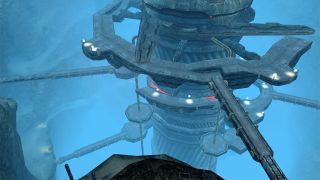
Xenoblade is positively ethereal
The substitute: Ether is the building block of life, and it flows within all the creatures of bionis. But building blocks are boring if they just sit around in the same shape all the time, so characters in Xenoblade Chronicles can use Ether to power aggressive and defensive arts or - in the case of Shulk's mythical Monado blade - even alter all forms of creation.
Why it's definitely not magic: If you call them 'arts' instead of 'spells' no one will ever suspect a thing. Aside from that, you can't usually extract magic from the ground. But most games aren't set on the colossal corpses of fallen gods, either.

Star Wars: The Old Republic is force sensitive
The substitute: It surrounds us. It penetrates us. It lets you heal your tank when he's about to eat the dust in a big raid. The Force can do just about anything you need it to (short of unbalancing the other classes, anyway), as long as you accept the consequences of your choices. Just doesn't seem like there's any way to shoot lightning out of your fingers and preserve your good vibes, unfortunately.
Why it's definitely not magic: Midi-chlorians, innit?

Magical thinking
Those are some of the most notable magic alternatives, but there are plenty more out there. What are some of your favorites? Or would you just rather everybody dropped the pretense and went back to the spellbook? Let me know in the comments below! Looking for some more unique RPG archetypes? Check out 16 classes that defy classification and the most ludicrously impractical RPG weapons.

I got a BA in journalism from Central Michigan University - though the best education I received there was from CM Life, its student-run newspaper. Long before that, I started pursuing my degree in video games by bugging my older brother to let me play Zelda on the Super Nintendo. I've previously been a news intern for GameSpot, a news writer for CVG, and now I'm a staff writer here at GamesRadar.
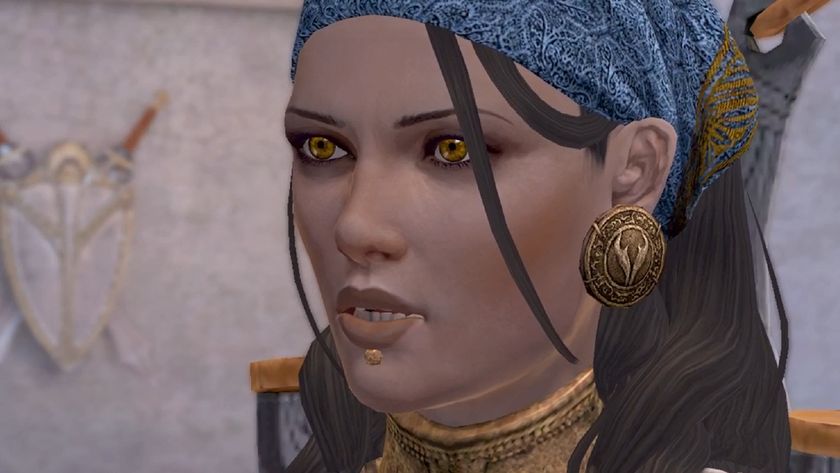
Veteran Dragon Age dev says one big delay is better than several small ones: "You are laying band-aid on top of band-aid on top of band-aid"

Baldur's Gate 3 Astarion actor comes face to face with what might just be the best merch to come of the RPG yet – a 5-foot Funko Pop figure of his character



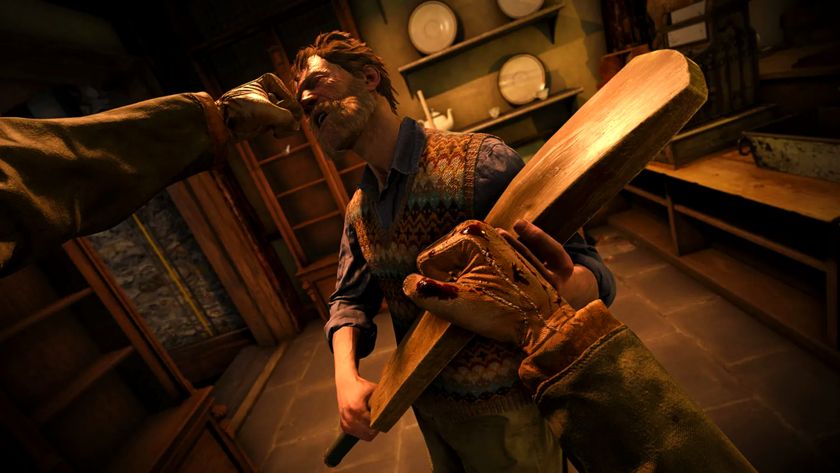
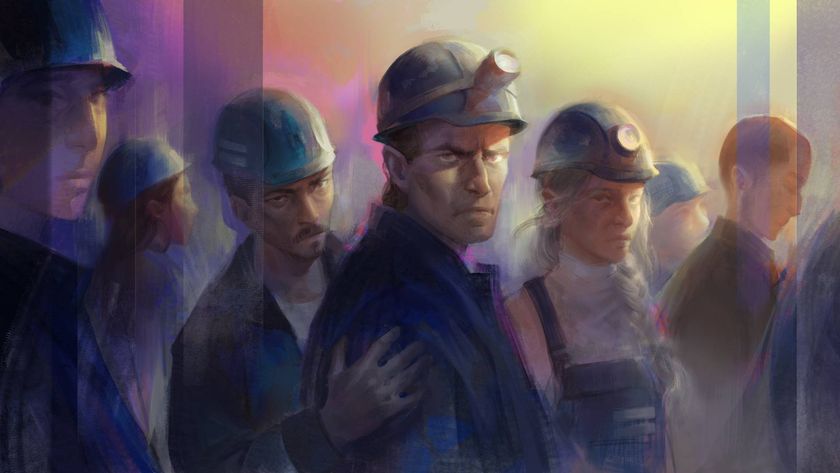
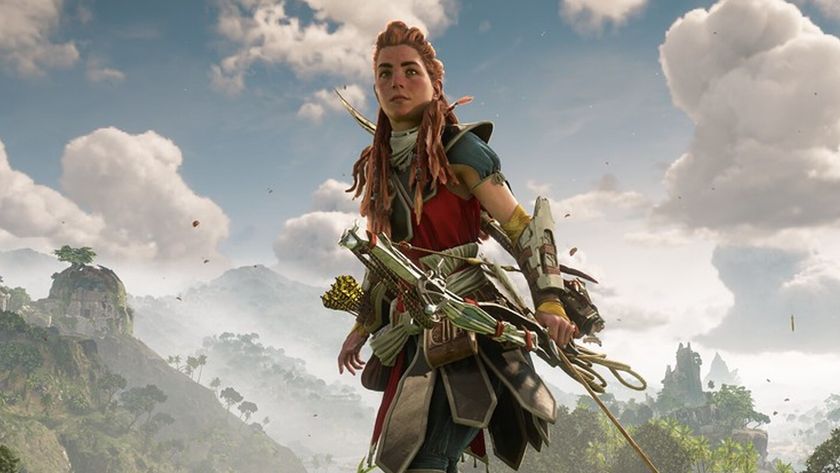







Veteran Dragon Age dev says one big delay is better than several small ones: "You are laying band-aid on top of band-aid on top of band-aid"

Baldur's Gate 3 Astarion actor comes face to face with what might just be the best merch to come of the RPG yet – a 5-foot Funko Pop figure of his character




